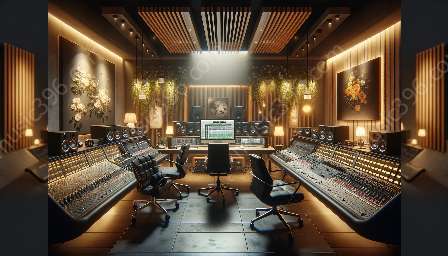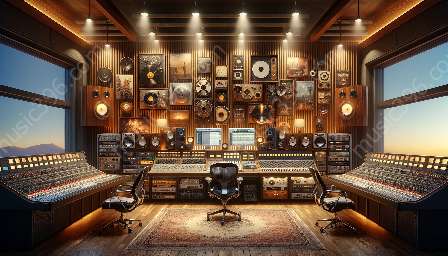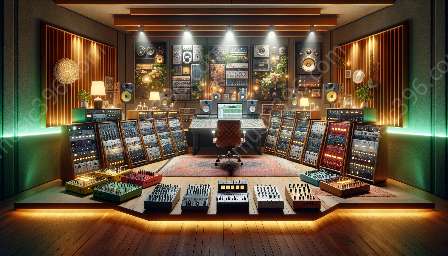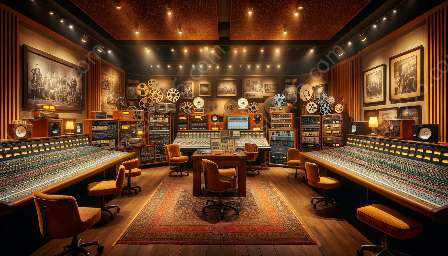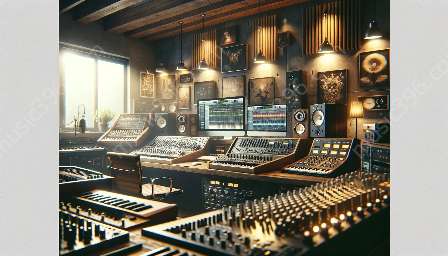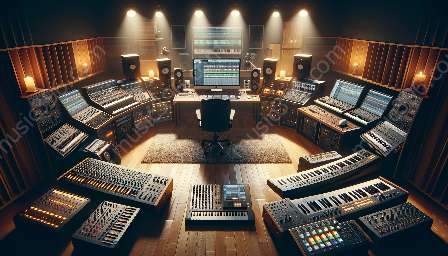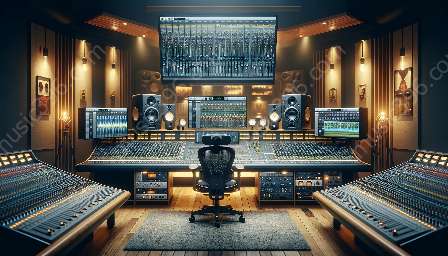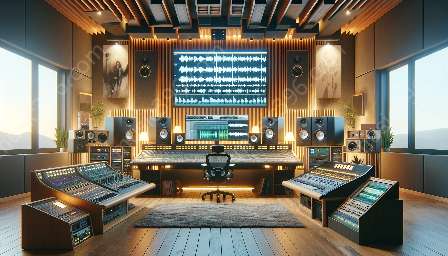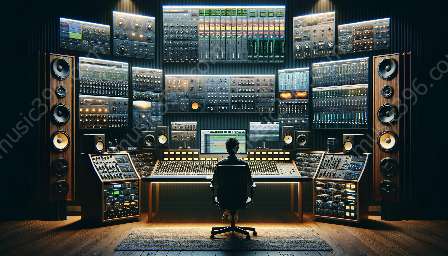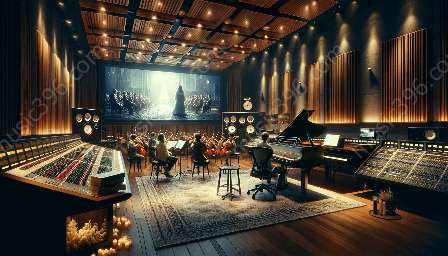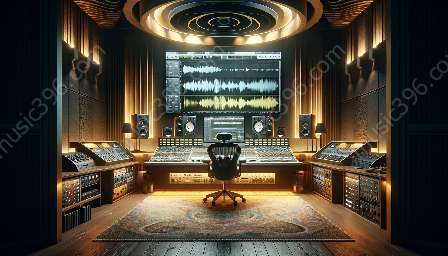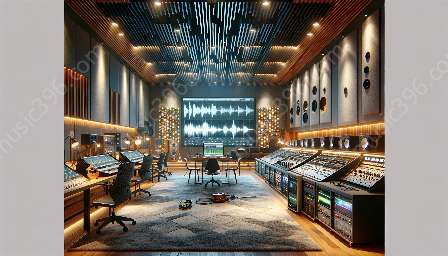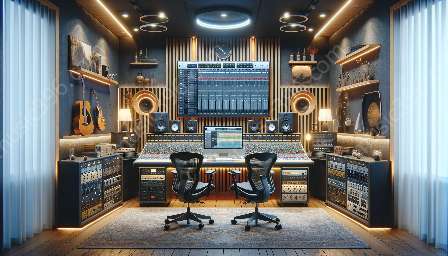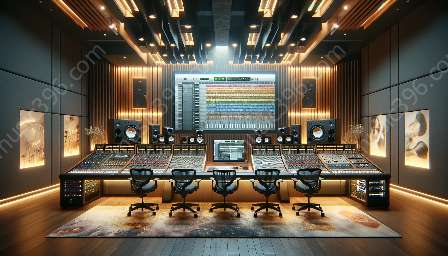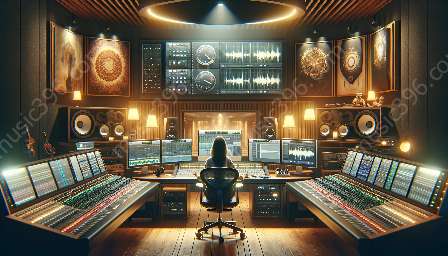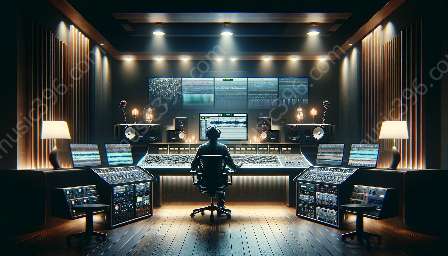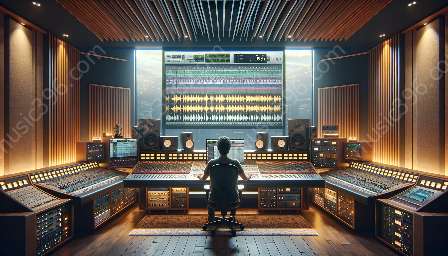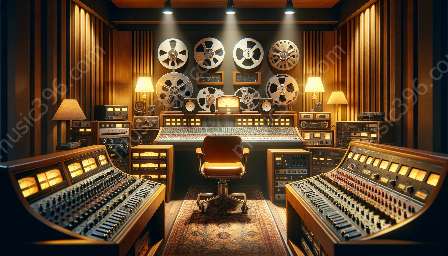Music production is a dynamic and complex art form that involves the creation and management of sound recordings. At the heart of this process is the role of the music producer, who plays a pivotal role in orchestrating the various elements that contribute to the final product. In this topic cluster, we delve into the multifaceted role of a music producer, explore the basics of music production, and understand how it intertwines with music recording.
The Role of a Music Producer
A music producer is a vital figure in the creation of a music piece, responsible for coordinating and overseeing the recording, mixing, and mastering processes to achieve the desired sound.
The producer serves as a bridge between the creative vision of the artists and the technical aspects of the recording process. They work closely with musicians, songwriters, and engineers to bring a musical concept to life, leveraging their expertise to enhance the overall quality of the production.
Music producers are involved in various stages of a project, from pre-production to post-production, offering valuable input on song arrangements, instrumentation, and sound design. They often act as mentors, providing guidance and direction to the artists while ensuring that the recording sessions run smoothly.
Key Responsibilities of a Music Producer
- Pre-Production: Collaborating with artists to refine musical ideas, select suitable songs, and plan the production process.
- Recording: Directing and supervising the recording sessions, offering creative input to enhance performances and capture the desired sounds.
- Mixing: Balancing and blending individual tracks to create a cohesive and polished final mix that showcases the artistic intent.
- Mastering: Fine-tuning the mastered version of the recording to ensure it meets industry standards and sounds consistent across different playback systems.
- Project Management: Overseeing the budget, schedule, and overall progress of the production, often liaising with record labels and studio personnel.
Basics of Music Production
Understanding the fundamentals of music production is crucial for aspiring producers and anyone interested in the art of creating music.
Music production encompasses a wide range of technical and creative processes, from sound selection and recording techniques to mixing and mastering. It involves utilizing various tools and equipment, such as microphones, digital audio workstations (DAWs), and outboard gear, to capture and manipulate audio signals effectively.
Key Elements of Music Production:
- Sound Design: Shaping and sculpting audio using synthesizers, samplers, and effects to create unique timbres and textures.
- Recording Techniques: Understanding microphone placement, acoustic environments, and signal flow to achieve high-quality recordings.
- Arrangement and Composition: Crafting the structure of a musical piece, arranging different sections, and integrating various musical elements.
- Mixing Principles: Balancing levels, spatial positioning, equalization, and dynamics processing to create a cohesive and immersive mix.
- Mastering Concepts: Applying final touches to the mix, including mastering EQ, compression, and loudness optimization for commercial release.
Tools of the Trade
Modern music production relies on a plethora of tools and technologies that empower producers to bring their creative visions to fruition.
Highly advanced digital audio workstations (DAWs) such as Pro Tools, Ableton Live, and Logic Pro provide a comprehensive platform for recording, editing, and mixing audio. These software applications offer an extensive array of virtual instruments, audio effects, and processing tools that enable producers to manipulate sound with precision and flexibility.
Additionally, hardware equipment such as studio monitors, audio interfaces, and outboard gear play a crucial role in the production workflow, allowing producers to monitor and shape the sound with accuracy and detail.
Music Recording and its Relationship with Production
Music recording is an integral component of music production, as it encompasses the capture and preservation of musical performances and sonic elements.
The process of recording involves capturing sound via microphones and converting it into electrical signals that can be stored and manipulated. This fundamental process forms the basis for subsequent production techniques and creative interventions by the producer.
During recording sessions, the music producer actively participates in shaping the sonic landscape, offering insights into performance nuances, microphone placement, and signal processing. They work closely with recording engineers to ensure that the captured audio aligns with the artistic vision and technical requirements of the project.
Understanding the link between music recording and production is essential for aspiring producers, as it enables them to appreciate the entire lifecycle of a music project, from inception to the final release.
Seamless Integration
Successful music production entails a seamless integration of recording, production, and post-production processes, with the music producer serving as the catalyst for creative and technical convergence.
By understanding the basics of music production and its relationship with recording, individuals can gain a holistic perspective on the intricate workflow that underpins the creation of music. This comprehensive understanding empowers producers to navigate the complexities of the music industry and contribute to the development of impactful and immersive musical experiences.



